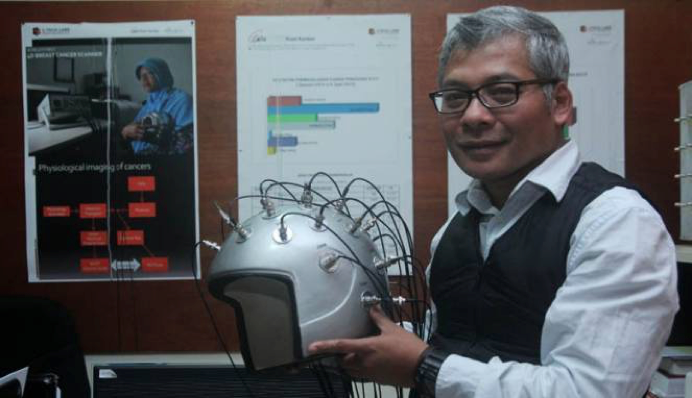Pseudoscience in Developing Countries: Standing Up To Government-Backed Fake Science

Inventor Warsito Taruno of Indonesia with his pseudoscientific cancer treating device, which received the country’s highest technology award in 2015—over the objections of doctors’ associations and the health ministry. Photo: forinme.com
By Omnia Gohar
SAN FRANCISCO—Science provides a universal stamp of approval. So it’s no wonder that some people use it to package non-scientific ideas to gain credibility. But when these ideas, which are mistakenly regarded as based on scientific method, are hailed by governments as great scientific breakthroughs, it’s no longer your average pseudoscience. This is when pseudoscience gets quite dangerous.
On 28 October, the World Conference of Science Journalists 2017 devoted a plenary session to this important topic: “Science Journalism, Authoritarian Regimes, and Pseudoscience.” Five international panelists shared examples of societally harmful pseudoscience in their home countries:
- Carla Da Silva Almeida of Brazil, science journalist and researcher for the Oswaldo Cruz Foundation (Fiocruz)
- Jasson Muir Clarke of Costa Rica, journalist and PR specialist; communications officer for World Animal Protection
- Dyna Rochmyaningsih of Indonesia, freelance science journalist
- Sarah Wild of South Africa, science journalist
- Mohammed Yahia of Egypt, executive editor of Nature Publishing Group in the Middle East; president of the World Federation of Science Journalists
In this podcast produced and narrated by student journalist Omnia Gohar of Egypt, the speakers also share their thoughts on the perils of fake science, the toll it can take on people’s lives, and insights on how journalists can combat it.
—
Omnia Gohar is a fresh graduate from the Applied Chemistry and Industrial Microbiology program at Faculty of Science, Alexandria University in Egypt. She is now a freelance science writer. She enjoys covering emerging science in the Middle East. Email her at omniagohar10@hotmail.com
